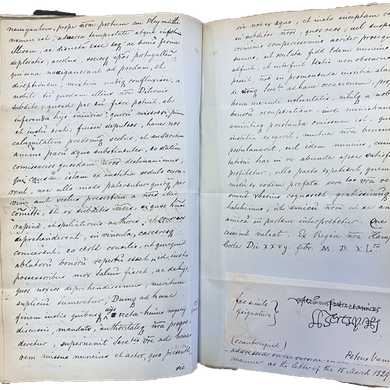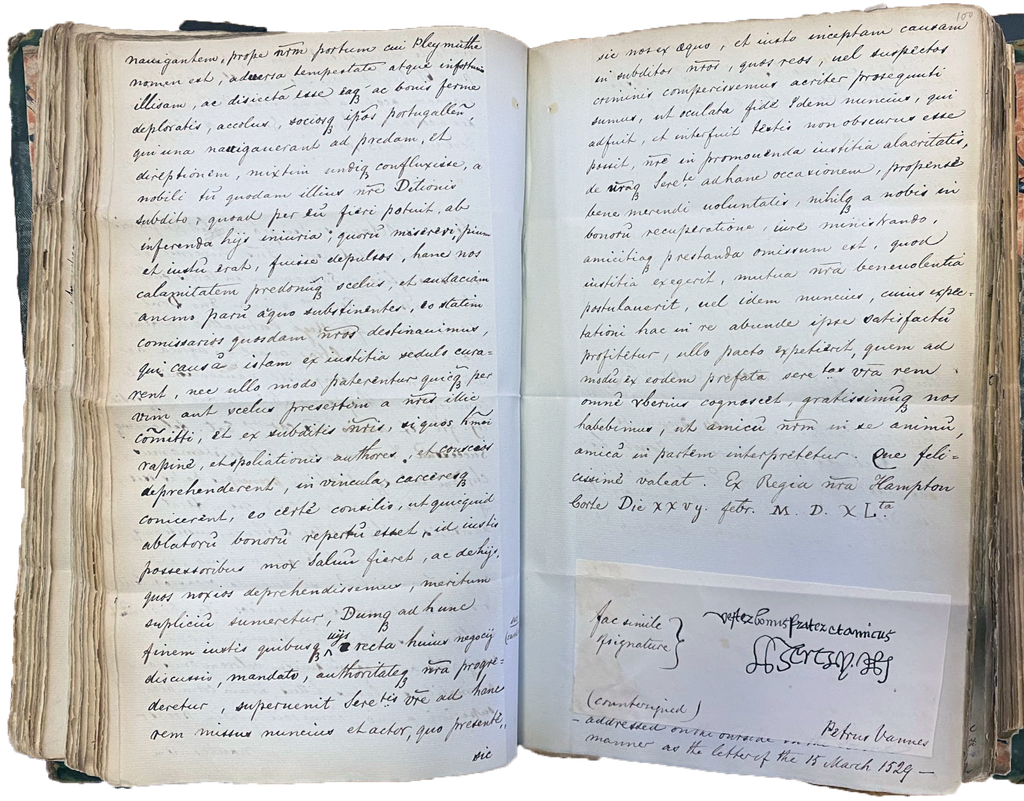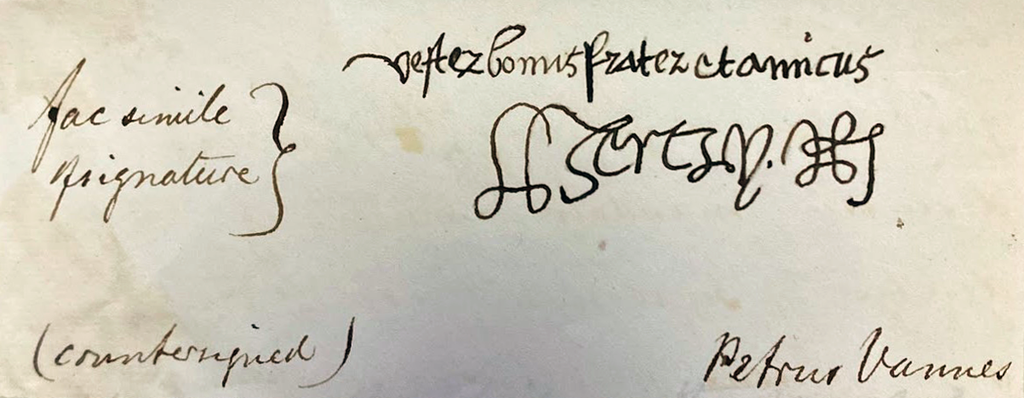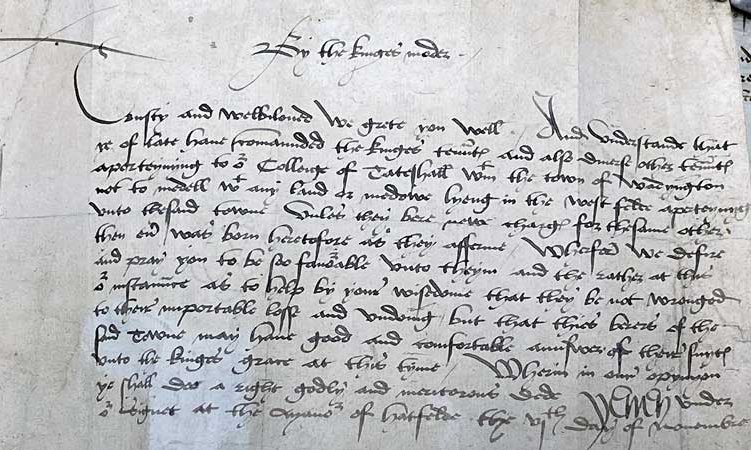Record revealed
Copy of Henry VIII's diplomatic assurances to João III of Portugal
This copy of a letter from Henry VIII, regarding a Portuguese shipwreck, was transcribed in 1835 by a civil servant sent to Portugal to find surviving British records. Recently rediscovered, it offers new insights into the historical relationship between the two countries.

Image 1 of 2

Translator Charles Masterton's copy of Henry VIII's letter, transcribed in Lisbon.
Translation
27 Feb. 1541: Henry VIII to John III of Portugal. Hearing that a Portuguese ship laden with spices was wrecked near his port of Plymouth and was being spoiled by the natives of the place and the crew of the ship, he at once sent commissioners to punish the spoilers and restore the goods to the owners. Meanwhile arrived an envoy from King John, who saw all that was done, and can bear witness that Henry omitted nothing in recovering the goods and ministering justice, and has professed himself satisfied. Hampton Court, 27 February 1541. Countersigned: Petrus Vannes
Image 2 of 2

Charles Masterton's copy of Henry VIII's signature.
Why this record matters
Date: 1835
In the early 19th century, as the idea of a British state archive was being discussed, parliament was keen to know what types of historical documents had survived from earlier periods. As surveys of the Crown's papers stored in the UK took place, so did a concern to discover correspondence sent to other nations and their rulers that might still be found in archives overseas.
To see what could be found, skilled records agents were sent to France, Spain, Venice, Sweden, the Vatican and other European destinations. Their task was to locate and transcribe England’s (and then Britain's) international communications on diplomacy, trade, and warfare. These were then published as part of a Victorian enterprise to summarise (or calendar) what were judged to be the most important public records.
One of the first overseas expeditions was to the archives of Britain’s oldest ally, Portugal. Charles Masterton, a former Foreign Office assistant translator, was dispatched by the parliamentary record commissioners to Lisbon in 1834. As his correspondence with London indicates, Masterton spent over a year using his linguistic skills and connections through the British embassy to gain access to the places where collections of ancient records were found. His letters show his constant worry about money, his opinions on Portugal and its people, and insights into the events happening around him – including reactions to the royal marriage of Queen Maria II to the duke of Leuchtenberg, and the duke's sudden death.
This transcribed letter from the Portuguese royal archives, the Torre de Tombo, shows an English investigation into the wrecking and plundering of a Portuguese ship off Plymouth in December 1540. Henry VIII wrote to King João III on 27 February, noting how, as it sank, locals and the crew had emptied the ship of its cargo of spices. Henry VIII explained, in Latin through his diplomatic official Peter Vannes, that he had done everything to recover the goods for the merchants who owned them, which a Portuguese envoy had affirmed.
In his transcription, Masterton carefully recreated Henry VIII's signature. A draft and many other mentions of the incident survive in the State Papers at The National Archives. The original that Masterton copied remains in the Torre de Tombo, where it has recently been digitised. The shipwreck has now been identified off Plymouth, thanks partly to the confirming evidence in this international paper trail. Masterton was excited enough by his discovery to highlight it in his dispatch to the record commissioners on 10 January 1835 under ‘Rey de Inglaterra’, as one of 12 copies of English royal letters he enclosed.
Although Masterton’s time in Portugal was not always happy or productive, he did leave a huge volume of paperwork. Yet his writings on the history of the Portuguese archives and his copies of the English state documents he found there were never published. But in 2023, investigations linked to the 650th anniversary of the Anglo-Portuguese alliance rediscovered Masterton’s goldmine of transcripts, translations, and letters. Today, they provide previously unseen archival evidence of Britain and Portugal's historic relationship.
